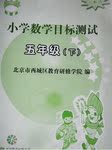题目内容
( ) 8. We’ve decided to hold a football match next week. Will you ________?
A.take part in B. attend us C. join D. play a part
D

 目标测试系列答案
目标测试系列答案
|
Today is Sunday. I’ve been in Canada for two maonths. |
|
|
This is the first time that I’ve been away my family for such a |
1. |
|
long time. With the help of Katia,a roommate of me, I’ve |
2. |
|
soon got used to live without my parents around. Katia, like |
3. |
|
many other Russian girls, are nice and lively. We become |
4. |
|
friends shortly after we meet each other. Although her English |
5. |
|
is a little hardly to understand, we enjoy charting and we |
6. |
|
usually talk a lot about our own. We are both surprised |
7. |
|
that Chinese culture or Russian culture are so different. Now, |
8. |
|
we are planning a small party for the next Sunday. There, Katia |
9. |
|
will introduce me to some of her friends, one of who has been |
10. |
|
to China several times. I just cant wait. |
|